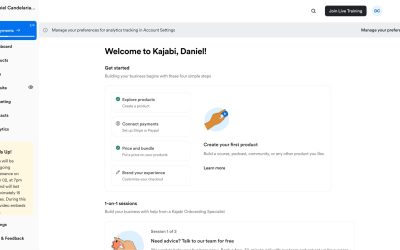We spend thousands of dollars on years of graduate school training to become a therapist. We use some of our training, but we also throw a lot of it out the window (e.g., How many master’s level counselors actually do extensive assessments, or use statistics on a regular basis?). It’s also really common for therapists to be trained in a particular therapy modality (e.g., psychodynamic), work a few years in the field, and then decide that another modality offers a better fit for their personal style, goals, and client population. That’s what happened in my case.
My graduate program was richly psychodynamic and interpersonal. Everything the client did came back to dysfunctional interpersonal dynamics and transference issues. The task of the therapist was always to use interpersonal process to evoke change. This was the only model I knew coming out of graduate school, so I used it in my first job in a college counseling center. I found that while my clients learned something new about themselves through therapy, they didn’t necessarily get better. In fact, they kept coming back to me with the same issues they came with in the first place.
So I went to the university library the next week and checked out every single book on CBT.
I talked to my supervisor about CBT and told him I wanted to hear everything he knew about CBT and how to use it.
I gathered some worksheets, watched some videos online, and started trying some basic techniques with my anxious college student clients.
This stuff starting working right away.
Clients loved it, they were getting better faster, and they didn’t necessarily need to come back to therapy down the road because they had taken with them some essential skills for dealing with their issues. The more I used CBT, the more I told clients, “my goal is for you to know everything I know about CBT. There are no tricks up my sleeve.”
That was in stark contrast to working psychodynamically, where the client seldom knows where their therapist is taking them or why they’re responding the way they are.
I was getting better at CBT, but soon found myself in San Francisco where it wasn’t good enough as a therapist to simply be a generalist in a city full of specialists.
I saw that Judy Beck from the Beck Institute for CBT was coming to SF in a couple months. I checked out the price of the training and quickly closed that tab.
“I’m not there yet. I’m not making enough money in private practice yet. What if it’s not a good training? I already have my degree.”
But then I thought it about it some more. When clients called and I explained that I use CBT, what did I have to back that up with? How would they know that I’m worth their time and money, and that I practice “real CBT” (because we all know that every therapist checks “CBT” on their PsychologyToday specialties page…)? I bit the bullet and spent the couple thousand dollars on the 2 day training on CBT for Depression and Suicidality.
I’d say I got my money’s worth even by just attending on the first day, during which I was lucky enough to have Judy Beck join my lunch table and pose for a picture together. I quickly realized that this was the real deal. As far as CBT goes, the Beck Institute is the place to be! Judy is the president of the organization, the leading author of authoritative books on CBT, and of course, the daughter of the Godfather of CBT…Aaron Beck.
I went home after the second day and put the training on my website, along with a picture of me with Judy.
I bumped my fees by about $15 and carried on.
A couple months later, a friend I made at the training asked me if I had interest in flying to Philly for another Beck training—this time on CBT for Anxiety Disorders, and it included training face-to-face with Aaron Beck. How could it get any better than this?! I hesitated again. The training was more expensive, flights weren’t cheap, and a hotel room for the weekend all seemed like deterrents. I found plenty of reasons not to do it. Then I thought again. What would it be like to train with Dr. Aaron Beck, arguably one of the most influential therapists alive today, and to have that claim for the rest of my life?
How would clients respond to seeing that on my website?
Being new to private practice, I didn’t have a budget for training (or traveling…), so such an expense felt like it was coming right out of my pocket. I was looking at it the wrong way (in more than one way). Knowing what I know now, I’d at least look into the budget I had for business expenses for that quarter or that year, and I’d also do the math to look at the Return on Investment(ROI). In other words, given that I was going to raise my fees after this training, how well would the training pay for itself?
Training with Aaron Beck in Philadelphia was incredible.
On the first day he was super late for the training. We were all annoyed and increasingly aware of how much we’d paid to be there. There were over 15 countries represented in a group of 25 attendees. Dr. Beck finally showed up with the most epic excuse I’d ever heard:
He was late because the Dalai Lama stopped by his house unexpectedly for lunch.
Aaron Beck changed the way I saw CBT. CBT gets a bad rap for being mechanistic, impersonal, and manualized. Dr. Beck’s style was extremely warm, personable, funny, charismatic, and fluid. I realized that although the theory of CBT is easy to understand, it’s very difficult to do gracefully in session. Seeing him in action was priceless.
I went back to San Francisco and this time bumped my rates even higher, beyond what the generalist next door was charging.
I had become a specialist, after all, and had the training to prove it. I topped it off by spending the next year training under a Certified Cognitive Therapist with weekly consultation and supervision.
Do you have a hard time getting past the mental blocks that come along with raising your fees? There are a lot of ways to get past those, but investing in high-end, big-name trainings is an effective way to do so with the guilt associated with charging more. When you get such specialty training, your confidence goes up dramatically, clients can sense that, they have a stronger belief that you can in fact help them, and then they get better faster and are more likely to tell their friends about you.
What are you waiting for?
John Clarke, MA, EdS, NCC, LPC is a licensed psychotherapist and a private practice expert. He has built thriving practices from the ground up in San Francisco, CA and Charlotte, NC. In building his current practice, he had 6 private-pay clients booked for the first day that his doors were open.
Get in touch today for a free initial consultation to learn how private practice consulting can help you take your business to the next level.



